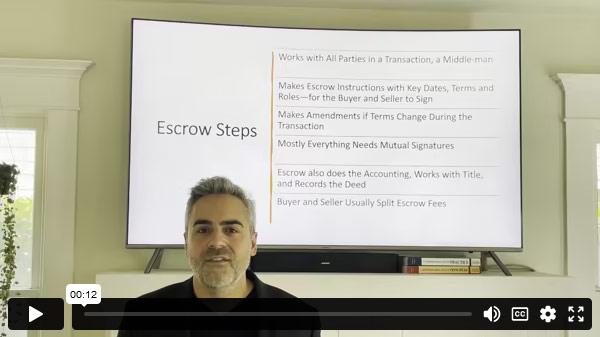The kids are grown and — if you are lucky — out of the house. There are no more clothes on the floor of their two bedrooms and the bathroom they shared stays clean and dry for weeks at a time now. (Hard to imagine a few years ago, right?)
Kids or no kids, perhaps you are about to retire, or you retired recently. Lucky you! Do you, or you and your spouse need all that space? Will you still want to walk up and down those stairs in five or ten years, or even now? What about the maintenance and the landscaping and the cleaning? These are just a few of the questions you will want to consider when making the decision about whether to stay put or downsize to a smaller home.
You will want to think about your age and any current or future health-related factors, all the emotional and familial issues, and the financial considerations as well.
Age and Health
With respect to age and health, of course it goes without saying that we’re all getting older. And once you hit your 60s, let’s just say your body doesn’t always cooperate with what you have in mind. And, as a result, your home may become more difficult to “navigate.” I just experienced that a couple of weeks ago. I’m 60-something and retired now due to Covid-19 closing off any job prospects. There are two flights of stairs in my 2300 square-foot home. I woke up one day and for no reason I could think of, my hip was hurting so much that I could barely walk. Welcome to being a senior (or almost a senior in my case). I carefully negotiated the stairs to get to the kitchen for my morning cup of tea. But I wondered how I would make it back up to go to bed that night. (I did, but I’m glad no one grabbed a cell phone to record my trip!)

Family
If you have family nearby, downsizing will not be as much of a factor as if your kids and other relatives live out-of-town and must travel to come visit. If you are still in the family home, they will of course want to plop down on the couch they probably sat on for years and take their old seat at the kitchen table while you whip up some of their favorite foods.
And when your kids have their own kids, sending them all to a hotel is an expense that might keep them from coming to see you too often. Besides, there is nothing like seeing your grandchildren playing with some of the toys their parents enjoyed years ago and running around in the backyard with the same soccer ball your kids kicked to each other and to the dog.
Emotional Attachment
In addition to family visits, perhaps you have been in your home for a long time and you raised your kids there. You have many fond memories of holiday gatherings, birthdays, the kids growing up, pets, friends, hugs, and all the love associated with life in that house. Those are some extraordinarily strong emotional attachments, and not many of us are willing to give that up. In fact, real estate research firm Trulia reports that a growing number of aging baby boomers are saying, “No, thanks” to downsizing, choosing instead to remain in the same sprawling houses in which they raised kids and created those lifelong memories.
Further, an Ipsos/USA Today poll in 2017 found that among 45 – 65-year olds, 43% anticipated remaining in their current home through their retirement. And according to a Chase Bank survey in 2019, 52% of baby boomers say they’ll never move from their current home, possibly indicating the share of non-downsizers is rising.
However, many older Americans still do opt to downsize to smaller or multi-family homes. But it appears that they may be doing so later in life. Trulia analysts say that the boomers are simply deferring downsizing to their 70s or 80s. Although data from the Census Bureau shows that in 2005 and 2016, 5.5% of households with residents age 65 and older moved, the youngest age at which seniors gave up their family homes was late 70s in the 2016 data and early 70s in the 2005 data. So, there does appear to be a bit of a trend.
Financial Considerations
Labor Department figures show that many boomers are staying in their longtime homes and communities because they are deferring retirement. About 20% of Americans 65 and older are still working (assuming they are lucky enough to have a job these days), or looking for jobs, up from 12.1% in 1996. Older people are staying in the workforce because they are healthier and will need bigger nest eggs to finance longer retirements, according to Jennifer Schramm, senior strategic policy adviser for the AARP Public Policy Institute. Also, many older workers’ retirement savings were partially or severely diminished in the 2009 recession.
Some seniors have stayed in their homes because they have finally paid off their mortgages and do not want to start making monthly loan payments all over again. Others have discovered that a smaller home will cost almost as much as what they will net from the sale of their current home, reducing the net profits of downsizing, so they will not necessarily be financially better off. From 2012 to 2019, the bottom third of homes with the lowest prices appreciated an average of 8.03% a year, versus 6.39% for mid-level homes and 5.01% for the most expensive units, according to a Trulia analysis.
But some older Americans cannot wait to downsize and rid themselves of the maintenance and cost of living in a big house. Before making that decision, it is a good idea to run the numbers either on your own or with the assistance of a financial advisor to make sure it makes financial sense. Look at costs associated with selling your home, such as preparing the house for sale, the agent’s commission, moving costs and the cost of buying a smaller home to get an idea of the fixed costs to relocate. And factor in any cost-of-living changes you might have, depending on where you would move to. If you are moving from Los Angeles to Florida, for example, you will likely be spending a lot less. But if you are leaving your home in Sacramento to buy a small condo in San Francisco, you will undoubtedly be spending more.
There is a lot to consider before deciding whether to downsize. Whether you do or you do not right now, any decision you make need not be set in stone. Circumstances may change and you may not feel the same way five or ten or twenty years from now. You can always revisit the idea and do what makes sense at the time.












